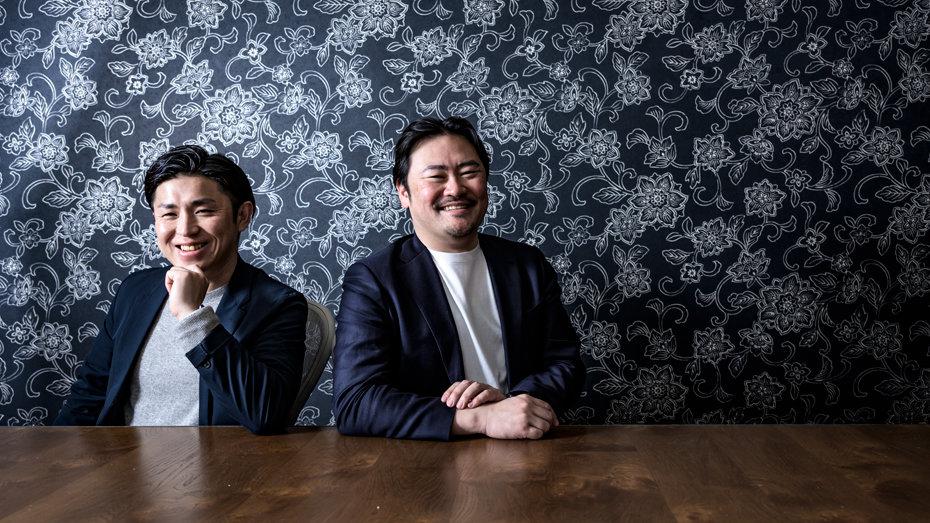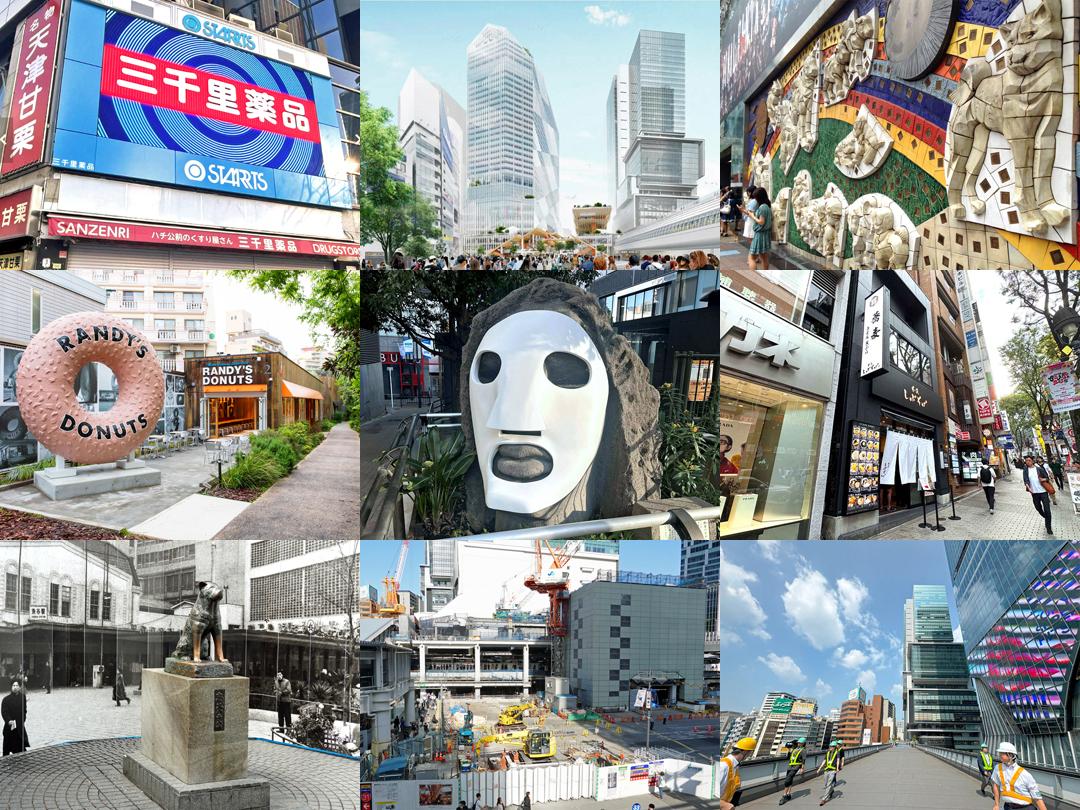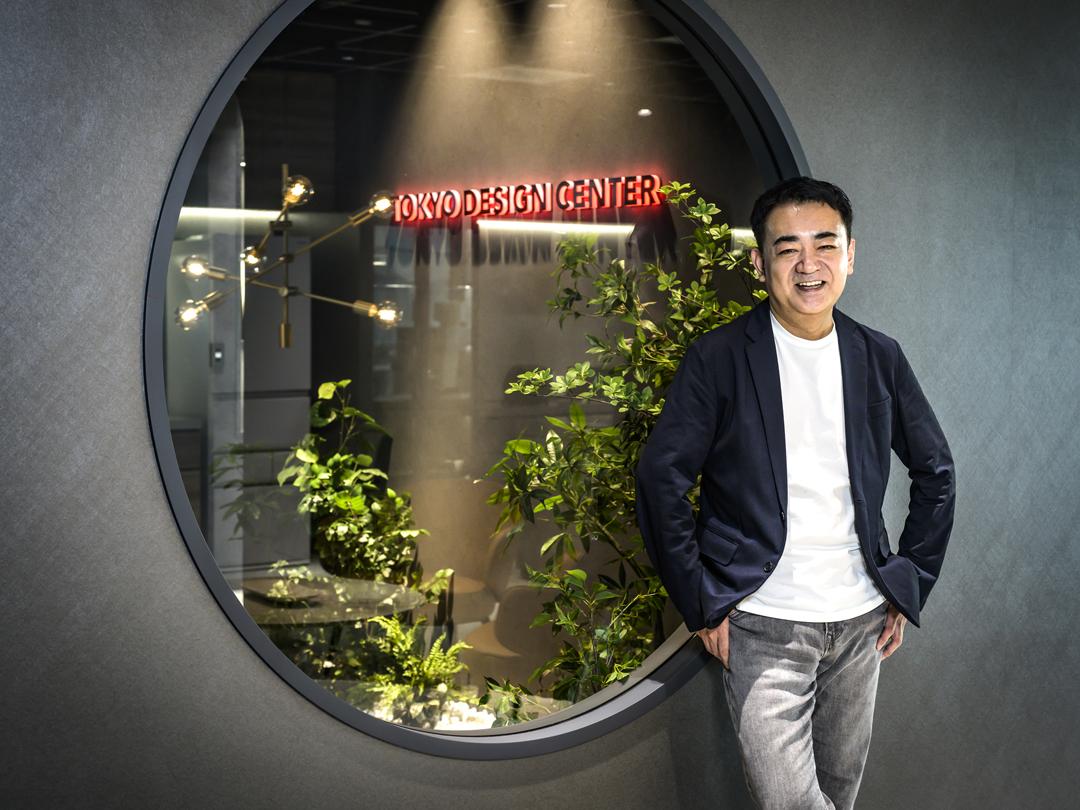SHIBUY.A. × INTERVIEW

Kazuhiro OkunoMr.
President and CEO/Co-founder of Omoide Inc.
There is no time barrier to people's feelings
A new way to create memories from Shibuya
2025-04-22
Kazuhiro Okuno (right)
After studying astrophysics at graduate school, he worked as a consultant and sales consultant for IT vendors for about 20 years. He currently provides digital support at a major consulting firm. In 2017, he founded Omoide Co., Ltd. as a "weekend startup" and became its president and CEO. He will retire in February 2025 and is currently supporting the business from the user side.
Yuki Ogiwara (left)
After gaining experience in web marketing at an advertising agency, he was involved in launching, operating, and supporting the growth of digital media. Currently, he supports business growth through data collection, conversion, and visualization, with a focus on digital marketing and digital transformation. In 2020, he joined Omoide Co., Ltd. as an external support staff member, responsible for developing business models, etc. In February 2025, he was appointed President and CEO.
One day, you receive a message. Imagine if it was written by someone you care about in the past, and it is filled with words of gratitude and affection. You will surely smile and feel a warmth in your heart. Omoide Co., Ltd. is creating this kind of experience of "delivering thoughts across time." Members who have full-time jobs are flexible and passionate about the business, running it as a "weekend business."
We want to help you convey words of gratitude and love across time.
Please tell us about Omoide Co., Ltd.'s philosophy and services.
Okuno: With the purpose of "Tomorrow will be a day filled with more smiles," we provide the app "OMOIDE," which aims to "connect people's thoughts across time." It is a service that allows you to easily send messages with photos and videos to your future self or loved ones. For example, you can write a letter to your future self, leave a message for your family in case of an emergency, or send messages to lovers on anniversaries. The more important the person is, the more gratitude and love you can put into the message. We believe that such words will make someone smile in the future. That is why we do our utmost to "always deliver the messages we receive." We are not too concerned with profits, and our business is based on the desire to make society a little better with the power of IT.

Founder Kazuhiro Okuno talks about how he started the company
What sparked the idea for this business?
Okuno: I had a lot of business ideas up until now, but I was busy with my main job and I didn't feel like "starting another business." But somewhere, I always had a desire to do something that was socially meaningful. The origin of "Omoide" was my grandmother who passed away when I was in graduate school. The last time I saw her, she was staring blankly out the window, as if she was looking back on her life. There were many things I wanted to ask her, but I forgot to talk to her, and that was the last time I saw her. After that, when I asked my mother and aunt, they surprisingly didn't remember the details, and I felt strongly that "Ah, this is how people's memories fade." Time passed, and one day when I had a family, I had a dream about dying and thought, "Am I no longer appearing in my family's story from tomorrow?", and the memory of my grandmother suddenly came to mind. So I thought, "If I use the power of IT, I can create a system that can keep a record of my life," and that was the first trigger.

"OMOIDE" is an app that allows you to create messages with photos and videos as easily as using social media, and save them in the cloud. You can deliver these messages to family and friends on future anniversaries or in the event of an emergency. Based on the concept of "messages to be delivered to the future," various new services have been created, such as wedding memories, travel records, and school time capsules.
We want to use IT not just to improve efficiency, but also to foster humanity.
Please tell us how you came to start your own business.
Okuno: I originally wanted to go to an art university, but I gave up because I thought I didn't have the talent. So, influenced by my mother who loved space, I majored in astrophysics at university. After graduating, I entered the IT industry. At that time, IT was really full of dreams, and I felt excited about creating new things. However, it gradually began to be used as a means of efficiency, and before I knew it, I was being chased by a large amount of emails and information. That's when I thought, "I want to use IT for something more human." That's how I came up with the "Omoide" service. When I told my colleague who was active as an entrepreneur, he said, "That's really interesting," and we started in 2017, saying, "Let's do it together." However, since I had a main job, I took it as a side job, did not take in outside capital, and aimed to be a company that will last for a long time like a tea shop in Kyoto. Since we will be entrusted with important messages for the long term, we have incorporated the company and properly disclose our financials so that people don't worry that "this company will go under." Currently, we are running the business as a "weekend business" with a group of around 7-10 people who share the same vision.

All of the employees at the company are working on the development and operation of "OMOIDE" as their life's work, adopting a new style of "weekend entrepreneurship" alongside their regular jobs.
Currently, you are also focusing on B2B business.
Okuno: The original idea was for parents to be able to leave their children with the words they wanted to say after they died. However, when we actually tried it, we realized that there was a problem: "The message is delivered so far into the future that it's hard to feel the value right away." From there, we expanded it to a more casual use. Currently, the majority of users are young people in their teens and twenties, and the mainstream usage is for couples to send messages on anniversaries or to send memories with friends a year later. We think it is important to first have them experience this and realize the value of the message, that "So this is what a message from the future feels like." Therefore, while we base our business on a paid model for business stability, we are also working to create a system that allows users to use the service more casually with the support of corporate sponsors. As part of this, the new CEO, Ogihara, proposed a model that naturally embeds advertisements and information in messages. For example, if a discount coupon arrives along with the words "I want to go again," it would be a very effective advertisement. In fact, the message open rate has reached 98%, and we are also working on collaborations with companies and organizations.
The most fun part is working towards the same goal as your friends.
Can you give me some specific examples?
Okuno: One travel-related company developed a project to preserve the memories of graduation trips like a time capsule and have people open it during their first summer vacation after becoming a working adult. It's a mechanism that naturally draws out the feeling of "Let's go together again." Recently, we've been approached about incorporating this service into elementary school graduation albums. And now we're starting on what we might call the "main castle." A major medical corporation asked us to make this service available to people who have been given a prognosis for cancer or other conditions, and we are currently developing it, including considering the impact on quality of life. Meanwhile, we are also preparing a service for inbound tourists from overseas, and are considering combining physical experiences with digital technology, such as "delivering messages printed on Kyoto washi paper."

Yuki Ogihara, who was appointed President and CEO in February 2025
How did you end up getting involved, Mr. Ogiwara?
Ogihara: Originally, Okuno and I were drinking buddies who met at a bar (laughs). The other members are mostly connected in the same way. When the business started, I remember hearing about the vision over drinks and casually saying, "That sounds interesting." After that, we heard that the number of users was not increasing, so I thought about what I could do. So I proposed a BtoB business, and I became seriously involved from around 2020. I originally felt that if I only did my main job, I would only be able to interact with my work colleagues, and my world would become narrow. Now, I share goals with like-minded colleagues and move forward while discussing this and that. The process itself is fun, and I feel like, "I'll be lucky if I can make even a little money in the end," but I think that kind of stance is just right.
Shibuya is the perfect place to spread new cultures and customs
What do you think are the advantages of having your base in Shibuya?
Okuno: We didn't really decide on Shibuya from the beginning. But now that I think about it, Shibuya is well known even among people overseas, and has the image of being a cultural hub. It's a city where new things are always being born. Our service is not just a function, but we want to root new cultures and customs, such as "writing messages for the future," so we feel that such cultural values and the atmosphere of Shibuya go very well together. Our service also has a mechanism that allows you to send messages by reading a two-dimensional code, so it might be interesting to have restaurants in Shibuya place it and send "memories" from there. Another use case is that it could be used at events such as "xth anniversary" organized by the government, where people gather to leave messages for the next milestone.

Shibuya Nonbei Yokocho. "It's a town where people cross paths at places like bars and where all kinds of encounters happen," says Ogihara -- and that's Shibuya's charm.
Ogihara: I'm originally from Nagano Prefecture, but when I came to Tokyo for university and played and studied there, Shibuya was a city that really caught my eye. During my student days, I used to hang out around "Nombei Yokocho" and walked around looking for various bars, such as Fujiya Honten before it was redeveloped. As I spent my time doing that, I naturally became friends with people who had been in Shibuya for a long time. Around that time, the number of foreign tourists gradually increased, and I began to realize that it was a place where I could meet all kinds of people. Shibuya is a city where destruction and creation are repeated, and people intersect in the midst of it all. I think that the charm of Shibuya is very big to me. I think it would be interesting if the service we are currently developing could become a tool that creates such once-in-a-lifetime encounters.

Ogihara, who took over OMOIDE from Okuno, talks about future prospects
Lastly, please tell us your thoughts about your future business.
Okuno: When I first invited the members, I said, "We may not become rich, but let's create something together that we can look back on and think, 'We made a great service' when we die." I wanted to create an innovation like when Apple released the iPhone, which became commonplace before we knew it, but was actually a new custom when we thought about it. I want to make it a service that the members who helped shape it can be truly proud of, saying, "I was involved in that." Due to the need to balance my main business, I will hand over the CEO position to Ogihara, but of course I will continue to be deeply involved in the company as before.
Ogihara: After all, it's really interesting to be able to continue a relationship with colleagues who want to work together and share a mission for the future. If it weren't for projects like this, I might not have had the chance to meet people I used to see often. We can think about new things together, talk, and laugh together in a place other than our main work. I hope to continue to evolve this service little by little with such colleagues.

In the Harajuku area where our office is located
Interview and writing: Ryota Ninomiya / Photography: Osamu Matsuba



